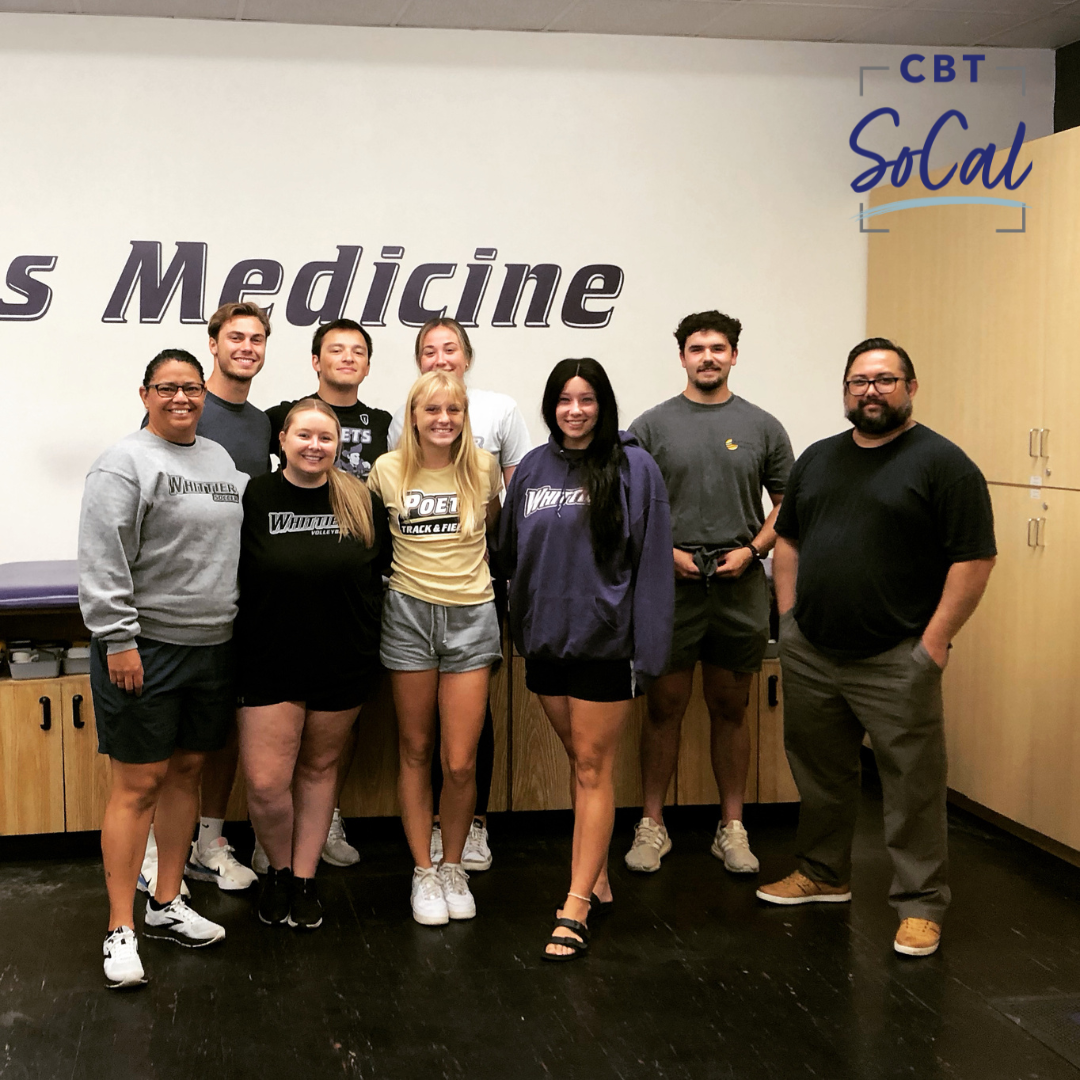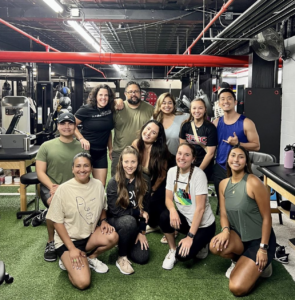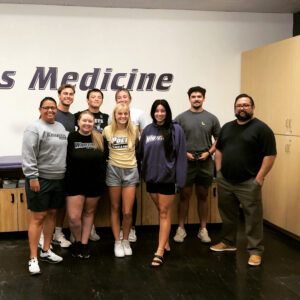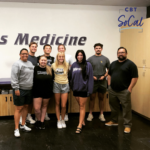Dr. Jason von Stietz provides sport psychology training to sports medicine professionals


Photo Credit: Physical Therapy San Pedro
Although sports medicine professionals are trained to identify and treat physical injuries, they are often the first to learn of an athlete’s mental health needs. Physical therapists and athletic trainers are often the healthcare providers that most frequently meet with an athlete. Overtime, they earn the trust of an athlete and get to know their individual needs. Therefore, when an athlete experiences an acute mental health crisis or struggles with chronic issues, such as anxiety or depression, they often turn first to their physical therapist or athletic trainer for support.
San Pedro Physical Therapy
CBT SoCal’s Dr. Jason von Stietz recently led a sport psychology training at San Pedro Physical Therapy, a clinic that offers sports physical therapy, dance physical therapy, concussion rehabilitation, and strength and conditioning for professional and student-athletes. Dr. von Stietz led a team building exercise for the clinical staff involving teaching them improvisational (improv) comedy. Although improv comedy may often appear silly, the first step in improvising is to remain focused on the present moment and listen closely to the other improvisers. Without sustained attention and finely tuned listening skills, improv cannot take place.
Does improv comedy teach teamwork?
The team at San Pedro Physical Therapy played an improv game in which they collaborated to create an “ancient proverb” related to their roles as sports medicine professionals. The game is played by each person contributing one word at a time. This requires each person to listen closely to the person before them and adapt their word choice to the unfolding proverb. After a couple practice runs, the team created the following proverb:
“Never bend the wrong way or you will hurt yourself. Progression leads to successful rehabilitation which will help improve functional strength. Patients will improve when you communicate with them and that positive reinforcement will bring them happiness.”

Whittier College Sports Medicine
Whittier College Sports Medicine
Dr. von Stietz also recently led a sport psychology training for the Whittier College Sports Medicine department. The department consisted of certified athletic trainers (ATC) and undergraduate student interns. Their primary goal as a department is to help student-athletes through “prevention, evaluation, recognition, management, rehabilitation, and reconditioning of athletic injuries that result from physical activities” (Whittier College Sports Medicine).
The sports medicine team also participated in improv comedy exercises with Dr. von Stietz. One exercise involved practicing an improv principle referred to as “yes, and” in which improvisers accept the reality created by each other and contribute additional ideas. For example, one person might say, “Wonder Woman will make a great addition to our sports medicine team.” Then, the next person might say, “Yes, and The Lasso of Truth will come in handy when we’re asking athletes if they did their physical therapy exercises.” The second improviser accepted the statement of the first improviser as truth and contributed another idea to the conversation.
Does improv comedy teach communication?
Sports medicine professional often need to be able to communicate important information in uncomfortable situation. Their patients or colleagues will not always agree with them. Therefore, it is important to practice communicating in situations in which someone else disagrees with their viewpoint. In order to practice this skill, the sports medicine team participated in an improv exercise in which one improviser believed that mozzarella is the best cheese for pizza and another improviser believed that cheddar is the best. However, the improvisers still needed to discuss their viewpoints using the improv principle “yes, and.” For example, one person might say, “Mozzarella is the by far the best cheese for pizza.” The next person might say, “Yes, I see why you would feel that way…and I prefer cheddar because of its sharp taste.” The second person accepted the viewpoint of the first person. Then, expressed their own viewpoint. Although this is a silly discussion for a sports medicine team, practicing this skill will be very helpful when communicating in difficult situations.
Sports medicine professionals play a vital role in the mental and physical healthcare of athletes. They need to listen carefully to their patients, develop trusting relationships, and adapt to the changing needs of the patient. Although improv comedy might seem unrelated to sports medicine, it can be a fun and very helpful way to develop these crucial skills.
If you are a sports medicine professional, athlete, coach, or parent of an athlete, and you would like to learn if sport psychology integrating CBT and improv comedy can help you, contact us for a free phone consultation.




